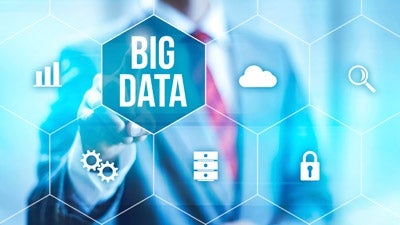
If there is one phrase we couldn’t seem to get enough of this year — that phrase is big data.
Every day our digital activity (on the web, on our smart phones, social networks etc) creates over 2.5 quintillion bytes of data. In fact, 90% of all the data in the world today has been created in the last two years.
As our phones evolve into our mobile wallets and our hub for digital tickets and coupons, they will add dramatically to the collection of data on consumer spending and behaviors.
Suffice it to say, we are leaving quite a trail. A trail that will help businesses get to know us better, anticipate our needs and provide real time service. As business owners we need to recognize this trend for what it is – both an opportunity and a threat. It’s also what could put you out of business if you ignore it.
While you may be personally creeped out by the robustness of your data trail, the truth is, most consumers expect you to use their data to service their needs. And now.
With information literally at their fingertips 24/7 and instant access to a host of social media platforms where they can (and do) tell the world if you’ve pleased or disappointed them, today’s consumers are at the epicenter of their world—and their expectations are unbelievably high.
These consumers, especially Millennials, take for granted the idea that companies are using the data they create to tailor offerings. Here are some of the ways we need to be thinking about meeting that consumer expectation. And don’t think that if you’re a B2B company, you are exempt. Your buyers have the same expectations.
Big data needs to mean personalizing offers: Some big box retailers are using data from loyalty card holders to offer different coupons to different shoppers based on insights gleaned via analytics—in essence, personalizing pricing.
On the B2B side, your customers expect that you are intimately familiar with their buying patterns and expect you to serve up offerings that match their buying patterns.
Big data needs to mean catering to consumers in real time: Looking back over last year’s data is so 2001. Your customers expect you to be reacting to what happened yesterday and this morning. They want you to anticipate their needs based on what is happening right now. Does weather, a specific current event or financial conditions in the country influence how your products and services are used? You’d better be tweaking offers, product improvements and availability based on those real time factors.
Big data needs to mean that my customer service should be all about me: Businesses in many industries can fine-tune their customer service to individual consumers based on consolidated data from various sources. This should be heeded, especially in the B2B space – where the assumption is that you have fewer customers and those you have, you know better. In their mind – it is a given that you are tracking and responding according to their past behaviors.
It’s a fine line, of course. We’re talking a trend, which means it isn’t mainstream yet. Some people will be uncomfortable that you know so much. But that will dissipate. And among the Millennials, the attitude is almost non-existent. They expect it. So expect this concern to be somewhat generational and over the long haul, fleeting.
Transparency will be critical. You will need to explain what digital data you are collecting and why, and then assure consumers you can be trusted with the information.
Today this is still cutting edge stuff, especially for most offline businesses. But tomorrow – it will be the norm. Don’t get caught behind.
This article was originally published by Drew’s Marketing Minute
Published: December 2, 2014
2082 Views
2082 Views












